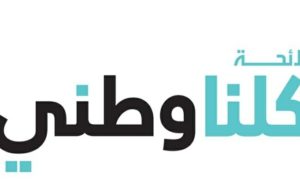Nationwide protests paralyzed Lebanon Friday as demonstrators blocked major roads in rallies against the government’s handling of a severe economic crisis and the country’s political class, CBS reports:
The tension has been building for months as the government searched for new ways to levy taxes to manage the country’s economic crisis and soaring debt. The trigger, in the end, was news Thursday that the government was planning, among other measures, to impose a tax on WhatsApp calls — a decision it later withdrew as people began taking to the streets. In some cases the demonstrations evolved into riots, as protesters set fire to buildings and smashed window fronts, taking their anger out on politicians they accuse of corruption and decades of mismanagement.

Credit: NDI
Demonstrators, who are angry over government plans to impose new taxes amid rising costs of living, chanted “Revolution! Revolution!” and “The people demand the fall of the regime”, Al Jazeera reports. They also accused Lebanon’s political leaders of corruption, and called for the country’s strict banking secrecy laws to be lifted and for state funds stolen over the decades to be returned to the treasury.
Jad Chaaban, an associate professor of economics at the American University of Beirut, says government officials had failed to read the mood of the population when they proposed the new tax, likely thinking that it was a small amount and would not have major effects on people. But under the circumstances, Lebanese people perceived the proposal as an insult, he told US News.
“If you put even one dollar per person now … and you think, ‘This is not a lot, everyone has to contribute, we’re in a crisis’ – this is what they say – well excuse me, no, you caused this crisis.”
 Chaaban says he believes the way out of the economic and political morass would be to have an “emergency plan implemented by an independent government that has a mandate to actually implement these reforms, and when you come to the tough reforms, you submit them to a national referendum.”
Chaaban says he believes the way out of the economic and political morass would be to have an “emergency plan implemented by an independent government that has a mandate to actually implement these reforms, and when you come to the tough reforms, you submit them to a national referendum.”
Around a third of Lebanon’s population lives under the poverty line, according to the World Bank, CNN adds. Lebanon’s lira, which is pegged to the US dollar, has also come under increasing pressure. Prime Minister Saad Hariri heads a national unity government that includes members of Hezbollah and its Christian allies, the Free Patriotic Movement.
Civil society organizations in Lebanon are increasingly using the internet to express their ideas and raise awareness of issues. But some groups need greater protection in the digital sphere, DW adds.







